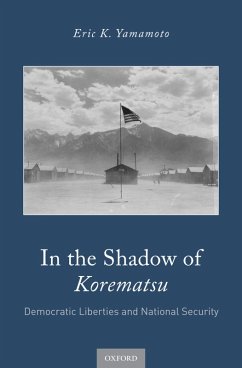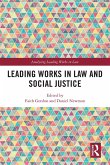The national security and civil liberties tensions of the World War II mass incarceration link 9/11 and the 2015 Paris-San Bernardino attacks to the Trump era in America - an era darkened by accelerating discrimination against and intimidation of those asserting rights of freedom of religion, association and speech, and an era marked by increasingly volatile protests. This book discusses the broad civil liberties challenges posed by these past-into-the-future linkages highlighting pressing questions about the significance of judicial independence for a constitutional democracy committed both to security and to the rule of law. What will happen when those profiled, detained, harassed, or discriminated against under the mantle of national security turn to the courts for legal protection? How will the U.S. courts respond to the need to protect both society and fundamental democratic values of our political process? Will courts fall passively in line with the elective branches, as they did in Korematsu v. United States, or serve as the guardian of the Bill of Rights, scrutinizing claims of "pressing public necessity" as justification for curtailing fundamental liberties? These queries paint three pictures portrayed in this book. First, they portray the present-day significance of the Supreme Court's partially discredited, yet never overruled, 1944 decision upholding the constitutional validity of the mass Japanese American exclusion leading to indefinite incarceration - a decision later found to be driven by the government's presentation of "intentional falsehoods" and "willful historical inaccuracies" to the Court. Second, the queries implicate prospects for judicial independence in adjudging Harassment, Exclusion, Incarceration disputes in contemporary America and beyond. Third, and even more broadly for security and liberty controversies, the queries engage the American populace in shaping law and policy at the ground level by placing the courts' legitimacy on center stage. They address how critical legal advocacy and organized public pressure targeting judges and policymakers - realpolitik advocacy - at times can foster judicial fealty to constitutional principles while promoting the elective branches accountability for the benefit of all Americans. This book addresses who we are as Americans and whether we are genuinely committed to democracy governed by the Constitution.
Dieser Download kann aus rechtlichen Gründen nur mit Rechnungsadresse in A, B, BG, CY, CZ, D, DK, EW, E, FIN, F, GR, HR, H, IRL, I, LT, L, LR, M, NL, PL, P, R, S, SLO, SK ausgeliefert werden.



